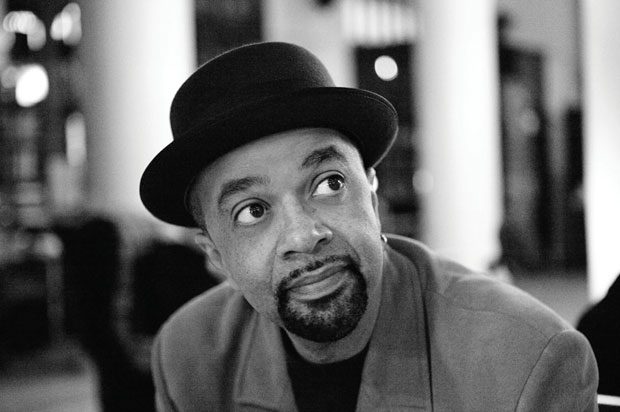
Brooklyn-born James McBride is the latest literary star to plant roots in New Jersey. McBride—author of last year’s National Book Award-winning novel The Good Lord Bird, about the abolitionist John Brown—moved into a Lambertville row house six months ago so he could spend time with his young son, Nash, who lives with the writer’s ex-wife. (McBride resides part-time in an apartment in Manhattan’s Hell’s Kitchen.) An accomplished songwriter and saxophonist—his Off-Broadway musical, Bobos, won the 1993 American Music Theater Festival’s Stephen Sondheim Award—McBride soared to fame with his 1995 memoir, The Color of Water: A Black Man’s Tribute to His White Mother, which spent two years on The New York Times best-seller list. The distinguished writer in residence at New York University talked with New Jersey Monthly in his Lambertville sitting room, tapping out a rhythm on his thighs with a pair of drumsticks.
New Jersey Monthly: How did it feel winning the National Book Award?
James McBride: Actually, I was stunned. Sometimes you’re just standing in the room when God coughs. You’re standing there when the wind blows, and your boat is going in the right direction.
NJM: So was it luck or talent?
JM: You make your own luck by working hard, you know? The award is a blessing. But I’ve been able to make my living as an artist for a long time, and that’s really the greatest blessing imaginable. I hate to sound blasé about it, but literary status is not important to me. Being happy is important to me.
NJM: Has your move to Lambertville contributed to that happiness?
JM: I moved here to be close to my 12-year-old son…. He’s here a lot. My older kids [college-age Jordan and Azure] are here a lot, too. But other than that, I don’t have company very often.
NJM: And you prefer it that way?
JM: Yeah. Look, I don’t want to insult my neighbors, so I try hard to be friendly. But I also like to keep a little distance because I don’t want people asking me, “What are you writing?” Some writers like to go around talking about what they do all the time. I don’t.
NJM: Are the people of Lambertville good at keeping their distance?
JM: The people here are normal. They’re my kind of people. I don’t like living around too many fancy-pantsy folks. That ain’t my thing. I’m not into phony people.
NJM: How do you organize your days in Lambertville?
JM: I get up at five in the morning every day, and I’ll fool around, read the newspaper, make some breakfast and get to work. By 10 or 11 I’m usually at the gym. Then I pick up my son. If I can’t sleep at night, I might come down here and play the piano.
NJM: Tell me about your music.
JM: I play everything. Gospel, R&B. I don’t do classical very well, but I like all kinds of music. I’m not a very good rock ’n’ roll player but, you know, I’m 56. I can’t jump around like I used to.
NJM: I understand you have a band. What’s its name?
JM: We don’t really have a name. It’s not the kind of thing where you stand up in front of people and say, “And the next song is…” I go out to universities and I do a kind of inspirational talk with music. I tell kids how they have a right to fail, how I screwed up when I was a kid [as detailed in The Color of Water].
NJM: Is your heart more in New York or New Jersey?
JM: If my son didn’t live here, I’d probably be in New York. But life is about adjusting to what’s there, you know? Life is about improvisation, really. It’s like jazz: You have to learn how to improvise and accept the parameters that are there before you.
NJM: So I have to ask: What are you writing?
JM: I’m busy finding my stories. I’m out here on the streets of Lambertville and in Hell’s Kitchen looking for them. That’s my job. I’m a policeman of stories.



